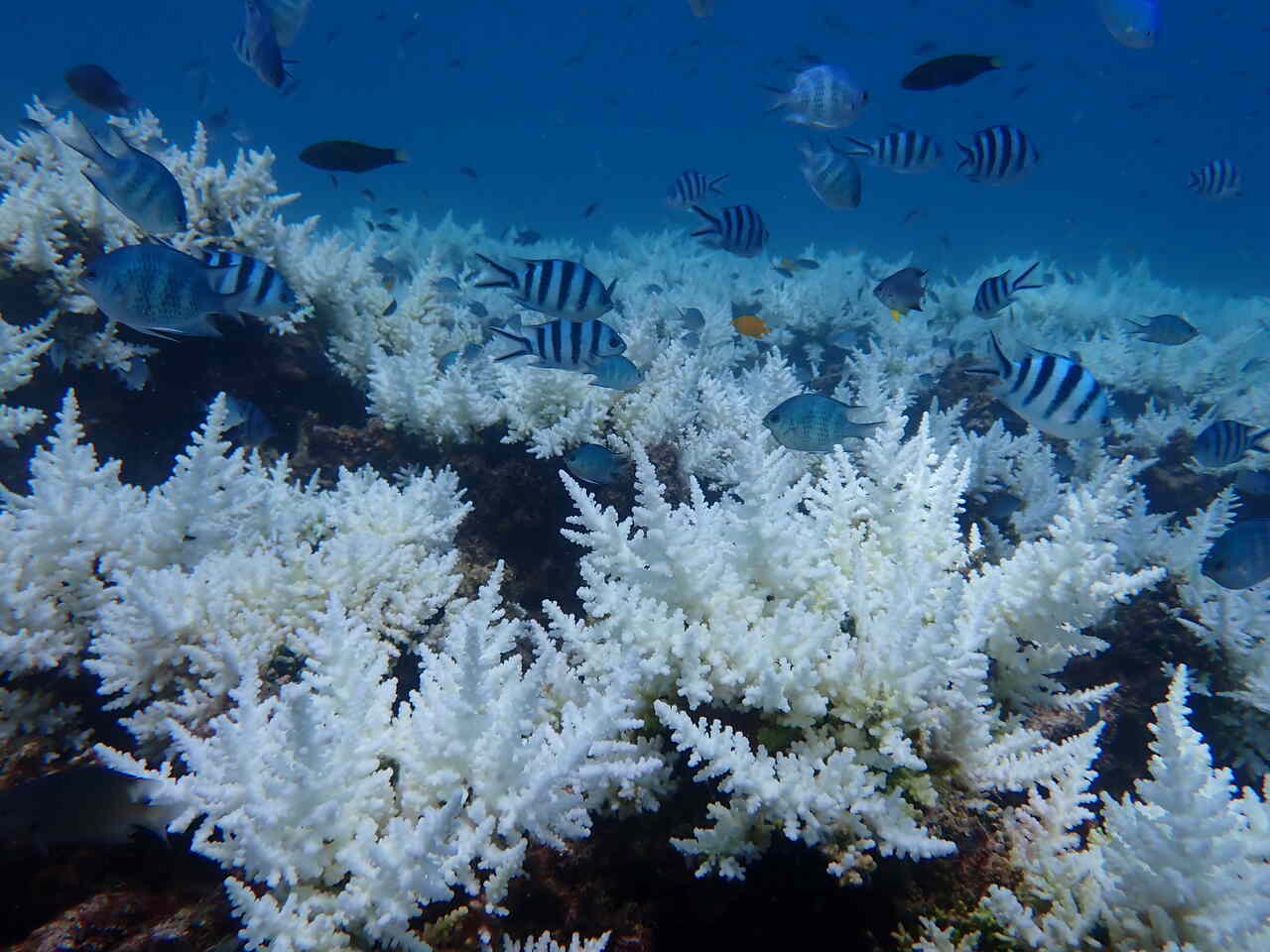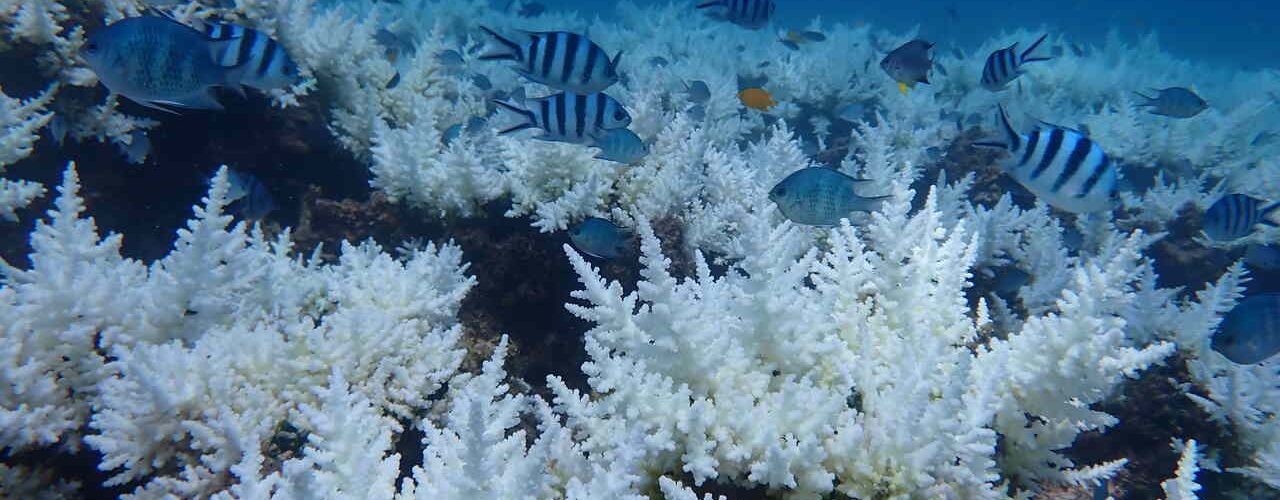Malaysia’s coral reefs are reeling from the most severe global coral bleaching event on record, with the 2024 Malaysia Coral Bleaching Impact Report revealing widespread damage to marine ecosystems across the country. Released by local conservation organisations Coralku and Reef Check Malaysia, the report highlights that over half of surveyed coral reefs in Peninsular Malaysia and Sabah have experienced bleaching, with more than a third already dead.
These findings echo global trends, where over 80% of the world’s reefs have been impacted, according to recent reports by The Guardian. In Malaysia, the northeastern region—especially the Terengganu archipelago—was the hardest hit, with average coral mortality rates soaring to 44.2%.
“Malaysian coral reefs are at a tipping point,” said Sebastian Szereday, Founder of Coralku and lead author of the report. “The scale and severity of bleaching observed in 2024 underscores the vulnerability of our reefs to extreme and prolonged heat stress, with profound implications for marine life and reef-dependent communities.”

Loss of reef complexity
Unlike previous bleaching events in 2010 and 2019–2020, the 2024 event has disproportionately affected coral species with complex growth forms—those that build the structural backbone of reef habitats. This loss of three-dimensional reef complexity is critical. These corals not only provide essential shelter for marine species but also maintain the aesthetic and ecological value of reefs.
The degradation of reef structures spells trouble for marine biodiversity, which depends on healthy corals for food and shelter. Furthermore, this decline undermines the economic viability of industries reliant on reef health. According to the Department of Fisheries Malaysia, six archipelagos within Malaysia’s marine parks hold an estimated value of RM8.7 billion, thanks largely to reef-associated tourism and fisheries.
Local actions urged to build reef resilience
While addressing global warming remains an international endeavour, the report urges Malaysia to act swiftly on the local front. “It is vital to take actions to support our weakened reefs,” said Chen Sue Yee, Science Officer at Reef Check Malaysia and co-lead author. She emphasised that measures such as controlling land-based pollution—from untreated sewage and industrial discharge to agricultural runoff—must be prioritised.

In addition, Chen highlighted the impact of coastal development, which contributes to sedimentation and direct physical damage to reefs. She advocated for sustainable tourism practices and enhanced community engagement in reef co-management. “Our findings with Community Marine Conservation Groups (CMCGs) show that these approaches improve awareness, livelihoods, and reef’s health,” she noted. She also called for stricter enforcement of no-take zones and fishing regulations to curb habitat destruction and overfishing.
Call for national coral crisis response
Looking ahead, researchers and conservationists are urging the Malaysian government to update its outdated National Coral Reef Action Plan (2010) to reflect the current realities of climate change. The report calls for the establishment of a national coral bleaching response committee, co-led by scientists, conservationists, and government representatives.
Lee Li Keat, a researcher from the National University of Singapore and co-author of the report, stressed the need to deepen scientific understanding of coral resilience. “Understanding the biological mechanisms behind coral resilience can inform restoration strategies and guide new interventions to help corals survive future thermal stress,” he said.
With global climate models warning that up to 90% of coral reefs could vanish in the coming decades if warming trends continue, the report delivers a sobering message. “Malaysia’s reefs are invaluable—not just as ecosystems but as sources of livelihoods, culture, and coastal protection,” it concludes. “Immediate, coordinated action is essential to ensure they have a future.”
The full 2024 Malaysia Coral Bleaching Impact Report is available on the websites of Coralku and Reef Check Malaysia. For further information, contact Reef Check Malaysia at [email protected] or Coralku at [email protected].












Add comment